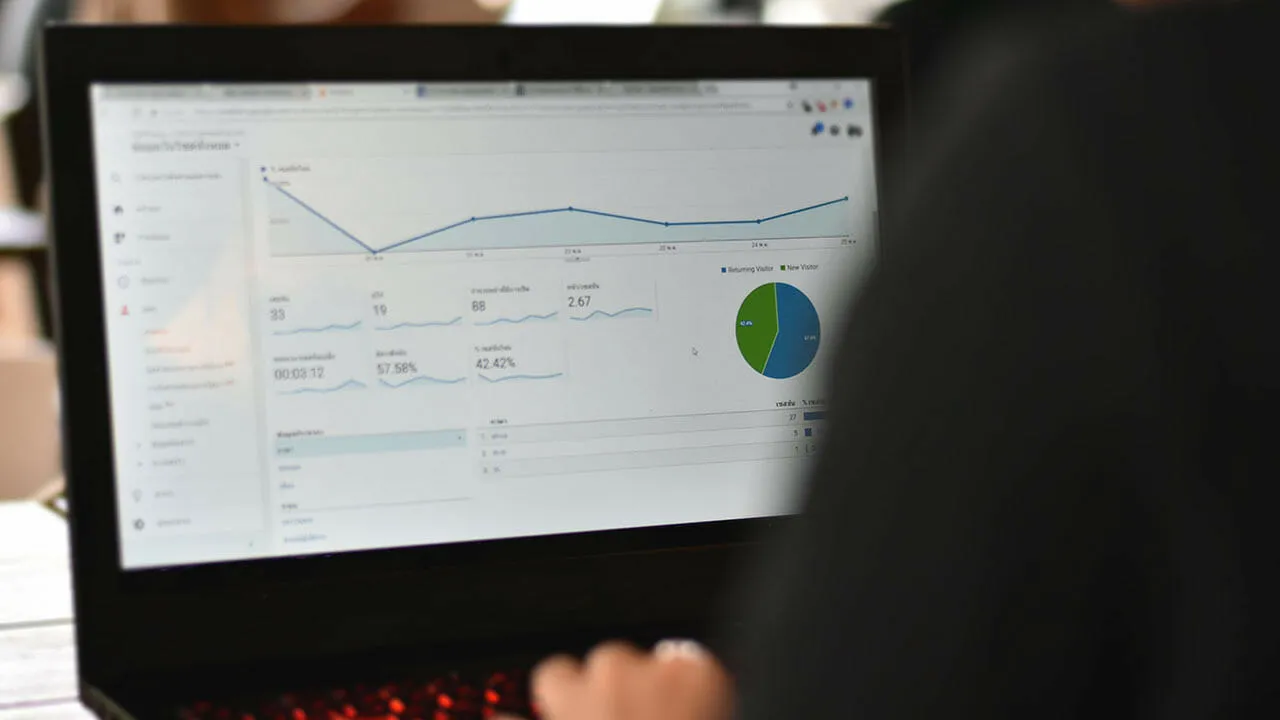How to prepare for the new generation of Google Analytics as a healthcare provider
In today’s world, the healthcare industry is highly dependent on collecting and analysing data, which is why many websites rely on Google Analytics. Earlier this year, Google announced that it would be retiring its current analytics platform, Universal Analytics (also known as GA3), and switching to Google Analytics 4.
Their deadline for all Universal Analytics accounts to migrate is 1 July 2023. While this may seem like the distant future, migrations can take time and always bring new issues to light. Adapting to the new system gradually will help avoid disruptions to your business.
Since Universal Analytics has long been the industry standard for data tracking, it’s no surprise that Google has announced the change with over a year’s notice.

What is GA4?
Google Analytics 4 (GA4) is a new program designed to:
- collect website and app data in one place
- integrate with new media platforms
- display data in ‘events’ rather than the less accurate ‘sessions’ measurement
- implement new privacy controls, such as cookieless measurement and behavioural modelling
- offer straightforward, user-friendly guidance without relying on complex data models
Google first introduced GA4 in 2019, so it is not a brand new system. Instead, Google has taken the time to perfect the implementation and features before the full rollout of the platform. So what are the key changes to be aware of?
Different data sets
On 1 July 2023, Universal Analytics, or GA3, will no longer process any data. You’ll still be able to see your old Analytics reports for a limited time, but new data will only be funnelled into GA4. The vast majority of data that you currently see in your Analytics account will also be present in GA4, but it might be in a different format.
For example, GA4 uses events-based tracking instead of session-based tracking. Events-based tracking is highly customizable and can make it simpler to review how much your visitors are interacting with your site.
Combined reporting for better analysis
It also combines web and app reporting for a fuller picture of the whole business. And, since GA4 is able to measure different types of data, you’ll be able to see your users’ journey across a variety of platforms. This is especially important because people no longer use only their computers to search for and access health information and care.
Crucially, GA4 is flexible so it can keep up with the ever-evolving data landscape, whereas the old Analytics system has struggled to adapt.
Improved insights into user journeys
While the old Analytics system was the industry standard, today’s data measurement landscape has changed drastically. People have moved more of their lives — including their healthcare — online, so businesses need better tools to understand the complex journeys users make.
Privacy updates
Finally, any new data measurement tool must be able to adhere to rigorous user privacy laws. GA4 is the most up-to-date system to date and can help you ensure that you’re treating private health information correctly.
For example, Google used to give people the option to anonymise a user’s IP address. Now, with GA4, not logging individual users’ IP addresses will become the standard process.
IP addresses can give you valuable information about where your readers are located, so GA4 will keep the location data but discard the IP addresses themselves.
GA4 also ensures that any data collected in the EU and UK (which both follow GDPR regulations) is also processed in the EU. Formerly, this data was sent to servers in the United States for processing, which could expose it to more risks.

What this means for your website
First, it’s vital to note that your current Universal Analytics data will not be deleted on 1st July 2023. This is just the date that Google will stop allowing you to track users on the old platform.
All previously gathered data in your Universal Analytics account will remain visible and its analysis tools will continue to work for the foreseeable future, but no new data will come in. Instead, all new data will be sent to GA4, which can run in parallel for some time. GA4 comes at no cost from Google.
It’s possible that Google will also develop a way to merge old Universal Analytics data into your GA4 account. Even if this doesn’t happen, there is still plenty of time for us to extract old data so it will remain available to you.
While it may feel like extra work to get to grips with a new tracking platform, the new capabilities are worth it. A healthcare startup or even a major hospital group will benefit from having more advanced tracking. It will also help you keep on top of changing privacy laws to ensure that you are giving users the best experience and not putting the business at any risk.
If you want to know more about what the migration means for health properties and for your website in particular, we can analyse it for you and walk you through the expected changes step by step.
What do Medico clients need to do?
Absolutely nothing. We will be migrating all client sites by the end of 2022, exceeding the given Google deadline by 6 months. Migrating our clients early means we will have plenty of time to answer your questions and identify and fix any issues that arise in the process.
In most cases, you will not need to take any action to implement GA4 yourselves. We can handle all of this internally and ensure your new data tracking is set up correctly.
What about non-clients?
We will be offering a one-off migration package to fully transfer your site over to GA4, even if you’re not a Medico client.
We are experts in healthcare and health information sites, which means we’re already familiar with the types of data you need to track for your business to thrive. Contact us today to find out more about the one-off migration packages.
In conclusion
Google is making the new GA4 mandatory from 1st July 2023. GA4 will make it easier to track and report across different platforms, can help you create better custom trackers and will comply with evolving privacy laws. While it can be daunting to change from a familiar tool, data technology and the online ecosystem are moving fast, so it is vital that our tracking and analysis keep up.
If you are already using Universal Analytics, you will need to be ready for the changeover. Luckily, Medico is handling the whole transition for our clients. We can walk you through everything you need to know about accessing old data and finding data in the new system.
If you’re not an existing Medico client but want experts in digital health to manage the transition to GA4 for you, we’re offering a migration package that can meet those needs. Contact us today to find out more.
